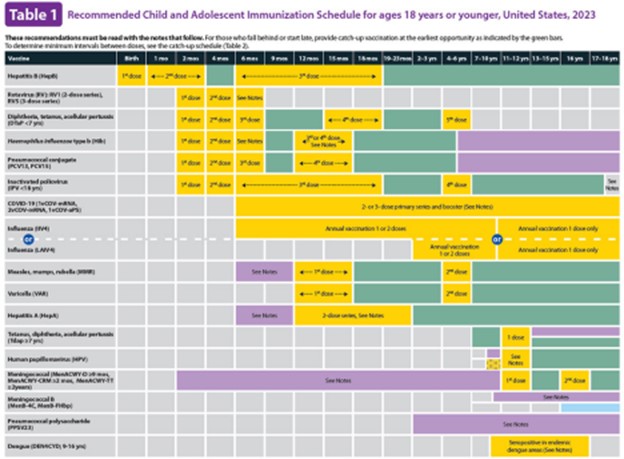A nurse is providing teaching to the parents of a newborn. Which of the following information should the nurse include?
"Your baby should receive the measles, mumps, rubella vaccine at 6 months.
"Your baby will receive the first diphtheria, tetanus, pertussis vaccine at the 2 week well-baby visit
"Your baby should receive the pneumococcal conjugate vaccine on his first birthday."
"Your baby will receive a hepatitis B vaccine prior to discharge
The Correct Answer is D
The hepatitis B vaccine is typically administered to newborns shortly after birth, usually within 24 hours.
The measles, mumps, rubella (MMR) vaccine is typically given between 12 and 15 months of age, not at 6 months.
The first dose of the diphtheria, tetanus, pertussis (DTaP) vaccine is usually given at 2 months of age, not at the 2-week visit.
The pneumococcal conjugate vaccine (PCV) is typically given in a series, starting at 2 months of age, and is completed by the age of 12-15 months. It is not given specifically on the first birthday.

Nursing Test Bank
Naxlex Comprehensive Predictor Exams
Related Questions
Correct Answer is A
Explanation
Children with congenital immunodeficiencies have compromised immune systems and may not be able to mount an adequate immune response to the vaccine. Administering live vaccines, such as MMR, to these children can potentially cause severe complications.
Correct Answer is C
Explanation
The inability to raise the head when in a prone position is a finding that the nurse should report to the provider. By 6 months of age, infants should typically be able to raise their head and chest off the surface when placed in a prone position. This is an important milestone in motor development and is known as "head control." The nurse should report this finding to the provider to ensure further assessment and appropriate intervention if necessary.
Whether you are a student looking to ace your exams or a practicing nurse seeking to enhance your expertise , our nursing education contents will empower you with the confidence and competence to make a difference in the lives of patients and become a respected leader in the healthcare field.
Visit Naxlex, invest in your future and unlock endless possibilities with our unparalleled nursing education contents today
Report Wrong Answer on the Current Question
Do you disagree with the answer? If yes, what is your expected answer? Explain.
Kindly be descriptive with the issue you are facing.
